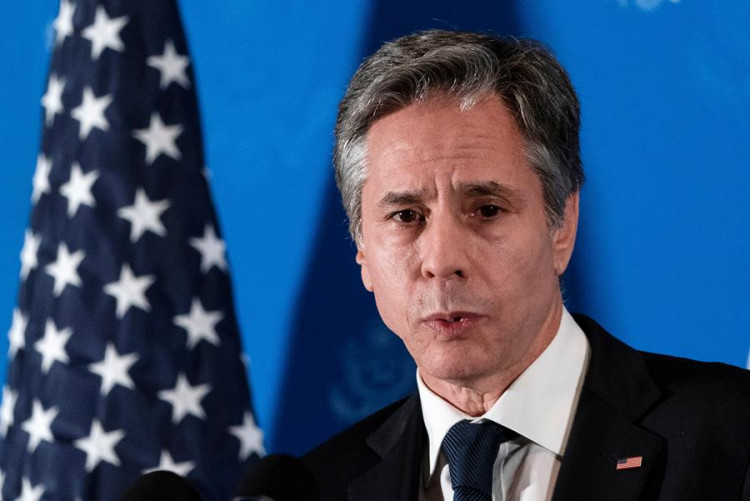U.S. Secretary of State Antony Blinken announced on Monday that Israeli Prime Minister Benjamin Netanyahu has agreed to a U.S. proposal aimed at bridging the gaps in the ongoing ceasefire negotiations. The next crucial step is for Hamas to accept the proposal, with further negotiations expected to take place later this week.
Speaking at a press conference in Tel Aviv, Blinken emphasized the urgency of the situation, stating, "The next important statement is for Hamas to say yes, and then, in the coming days, for all of the expert negotiators to get together to work on clear understandings on implementing the agreement." This agreement, if finalized, could mark a turning point in the 10-month-long war in Gaza.
However, significant challenges remain before a deal can be reached. While Netanyahu's acceptance of the proposal is a positive sign, Hamas has yet to agree, and negotiators are still hammering out the specifics of how the agreement would be implemented. The parties are also working to establish "clear understandings on how the different parties are going to make good on their commitments," Blinken noted.
Ahead of his meetings with Israeli officials on Monday, Blinken highlighted the "decisive moment" in the push to finalize a ceasefire and hostage deal in Gaza. "This is probably the best, maybe the last, opportunity to get the hostages home, to get a ceasefire, and to put everyone on a better path to enduring peace and security," Blinken said alongside Israeli President Isaac Herzog in Tel Aviv.
Blinken's remarks underscored the urgency of the situation, warning that "intervening events come along that may make things even more difficult, if not impossible." The U.S. diplomat made it clear that the time to act is now: "It is time for everyone to get to yes, and to not look for any excuses to say no. It's time to make sure that no one takes any steps that could derail this process."
The announcement followed a three-hour meeting between Blinken and Netanyahu in Jerusalem, which both sides described as constructive. Netanyahu has committed to sending senior negotiators to "complete this process" in either Qatar or Egypt, where further talks are expected to take place. However, details about the "bridging proposal" remain unclear. The proposal, which was put forward last week by the U.S. with the support of Qatar and Egypt, aims to mediate the ongoing conflict, particularly as the Middle East braces for a potential escalation involving Iran.
Despite Netanyahu's acceptance of the U.S. proposal, Hamas has suggested that a deal is still far off. The group has expressed dissatisfaction with the proposal, claiming it does not include a permanent ceasefire and introduces new conditions on the exchange of prisoners. Hamas has blamed Netanyahu for "obstructing" a deal and reiterated its support for a three-phase proposal presented by U.S. President Joe Biden. This plan includes the release of hostages from Gaza, a "full and complete ceasefire," and the release of Palestinian prisoners held in Israel.
Netanyahu, however, has remained firm in his stance, stating that Israel will not yield to Hamas's demands to end the war in Gaza as a condition for any deal. "The Prime Minister has strongly insisted on this fundamental demand, which is vital to achieving the goals of the war, and Hamas changed its position," Netanyahu's office said in a statement.
Blinken, while acknowledging the complexities of the negotiations, expressed hope that further discussions with Egyptian and Qatari officials would provide more clarity on Hamas's intentions. "We've seen public statements, but we've seen public statements before that don't fully reflect where Hamas is," Blinken said.
The situation remains delicate, with other key sticking points in the talks including Israel's control over the border between Gaza and Egypt, its veto power over which Palestinian prisoners are released, and efforts to prevent the movement of armed men from southern Gaza to the north.
During his visit, Blinken also addressed the broader security concerns in the region, particularly the threat of attacks from Iran and its proxies, including Hezbollah in Lebanon. "We're working to make sure that there is no escalation, there are no provocations, that there are no actions that in any way could move us away from getting this deal over the line, or, for that matter, escalating the conflict to other places and to greater intensity," Blinken said.
The ongoing violence in the region only underscores the fragile nature of the ceasefire talks. As Blinken arrived in Israel, an explosion in Tel Aviv was declared a terror attack by Israeli officials, with Hamas's armed wing, Al-Qassam Brigades, claiming responsibility. In Gaza, Israeli airstrikes have continued, with reports of multiple civilian casualties, further complicating the path to peace.




